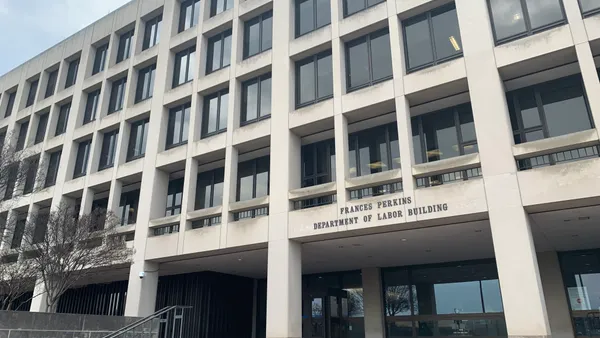Dive Brief:
- When the U.S. Department of Labor or the Equal Employment Opportunity Commission (EEOC) make changes, employers listen. Two recently proposed changes are running into stiff resistance from the GOP-controlled House and Senate, according to the Greeley Tribune.
- The Labor Dept.'s pending changes to its overtime exemption rules no doubt will drive dramatic outcomes in employer compensation systems, as millions of employees nationwide previously classified as exempt will move into the non-exempt category. Plus, proposed revisions to the EEO-1 Report will require some employers to report pay data who haven't before, with additional employers required to file the EEO-1 report annually.
- In both situations, there have been complaints and comments in public forums. But now federal agencies are receiving some serious static while trying to put the new rules in place and enforce them, according to author Katie Loehrke, with J. J. Keller & Associates, a compliance resource firm.
Dive Insight:
Loehrke explained that the Labor Dept. sent its exemption regulations final version to the Office of Management and Budget in mid-March (though according to media reports, they may arrive earlier than expected this summer). Congressional Republicans say the Labor Dept. failed to take into account how much damage the exemption rules would cause employers, mainly small businesses and lower-wage industries.
As a result, bills have been introduced in the Senate and the House to block the exemption changes and to require the DOL to conduct a more comprehensive economic analysis of the effects of the changes before issuing any new proposals. President Obama is expected to veto any such legislation that gets to his desk.
The EEO-1 provisions will ask for company employment data to be categorized by race/ethnicity, gender and job category. Loehrke reported that Senator Lamar Alexander (R-Tennessee) introduced a bill basically saying the EEOC never adequately considered the negative effects the changes would have on employers. Among other things, Alexander's bill would pause the EEO-1 revisions and require the EEOC to provide a more accurate estimate of the cost to employers.
With President's veto pen at the ready, it's likely that neither bill will make it to law. Loehrke says that employers nevertheless should think about what a new administration could mean when it comes to these changes.














